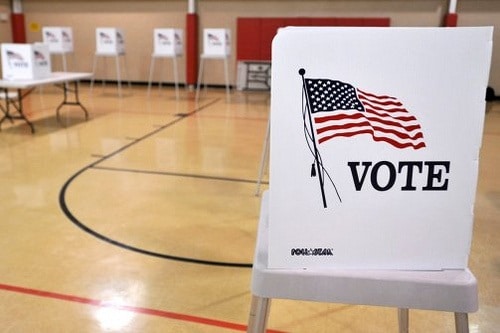Alabama voters will see eleven statewide constitutional amendments on the ballot November 6th. And while they will appear numerically, it’s worth grouping together three specific amendments
Constitutional Reform
Rewriting Alabama’s constitution has been an ongoing, simmering issue for the state. It’s the longest constitution in the country with more than 800 amendments. But beyond that, some believe the document is outdated, flawed and racist. Advocates, such as the group Alabama Citizens for Constitutional Reform Inc., have been pushing for years for a constitutional convention.
That hasn’t happened.
Instead when Republicans took control of the state legislature after the 2010 election, they set up the Constitutional Revision Commission. That body is charged with rewriting the state’s constitution article by article and amendments nine and ten represent the first fruits of that labor.
Amendments Nine and Ten cover corporations and banking respectively. They are relatively non-controversial, having passed the legislature without opposition, and mostly deal with removing antiquated and obsolete language. For instance, Alabama’s 1901 constitution was written with only one kind of corporation in mind where now there are eleven types. The banking amendment removes language about banks issuing currency and references to the gold standard.
ACCR Inc.’s chairwoman Lenora Pate said she’s still like to see a constitutional convention, but the organization has supported the commission’s efforts.
“It is a first baby step toward true constitutional reform, but nevertheless, an essential step.”
While those two measures haven’t attracted a lot of attention, Amendment Four is a different story. It’s not a rewrite of a section of the constitution, but does make some historic changes.
That amendment would remove references to poll taxes and segregated schools – wording that isn’t in force but is a vestige of Alabama’s Jim Crowe past. Supporters say passing the amendment should be a no brainer and would help clean up the state’s image. Yet the amendment has drawn fire from some African-American lawmakers and the Alabama Education Association because it doesn’t guarantee the right to an education.
Commission Vice-Chair, Rep. Paul DeMarco (R-Homewood) said he’s not discouraged by the controversy around amendment four, even with more contentious constitutional topics on the horizon.
“It’s never been easy and it won’t be easy, but that’s okay. That’s part of the process.”
For now, DeMarco is focused on these amendments, not the next rewriting effort.
“If these don’t pass, you’re really not even going to have that discussion.”
Other Amendments
Amendment One – This amendment would reauthorize the Forever Wild land conservation program for 20 years. That program uses interest from the state’s oil and gas revenue to buy land for hunting, fishing and other outdoor activities. Forever Wild has enjoyed widespread support, but some have suggested the money would be better spent elsewhere.
Amendment Two – This amendment would allow the state to refinance bonds, freeing up room under a $750 million dollar bond cap. The state could then issue new bonds to pay for economic development incentives. Governor Robert Bentley has been specifically pushing this amendment, even appearing in TV ads. He says without the money Alabama can’t compete with other states for industry.
Amendment Three – Despite being a statewide ballot question, amendment three only applies to Stockton in Baldwin County. Passing the amendment would create a landmark district for Stockton and prevent the town from being annexed without a vote of residents.
Amendment Five – Similarly, amendment five just affects Prichard residents. It would dissolve the Prichard Water Works and Sewer Board, moving control to the Mobile Area Water and Sewer Board.
Amendment Six — This amendment changes the constitution “to prohibit any person or health care provider from being compelled to participate in any health care system” and is squarely aimed at blocking President Barack Obama’s Affordable Care Act. However, with the U.S. Supreme Court having already ruled on that law, it’s unclear whether the Alabama measure would have any effect because federal law trumps state law. One legal scholar suggests while the amendment wouldn’t stop the ACA’s mandates, it would prevent the state from mandating residents buy health insurance.
Amendment Seven – This amendment is another case of a larger issue playing out at the state level. It affirms “the right of individuals to vote for public office, public votes on referenda, or votes of employee representation by secret ballot is fundamental,” meaning labor unions could not organize by card check. Under that method, at least half of employees at a company simply sign a card expressing interest in forming a union. If the amendment passes, a union could only organize in Alabama with a secret ballot. Labor unions have been pushing card check legislation at the federal level.
Amendment Eight – State lawmaker’s pay would be tied to and fluctuate with the state’s median annual household income under this amendment. Median household income dropped to about $41,000 last year, so with travel reimbursements a typical legislator would be paid about $47,000. Right now, legislators earn just more than $55,000.
Amendment Eleven – This final amendment is specific to Lawrence County. It prohibits any municipality outside of Lawrence County from imposing regulations or taxes in that county.
See the wording of all statewide and local amendments
~ Andrew Yeager, October 30, 2012

